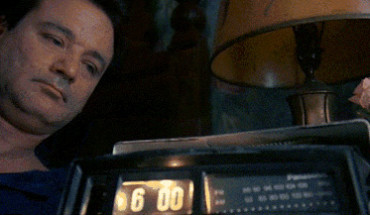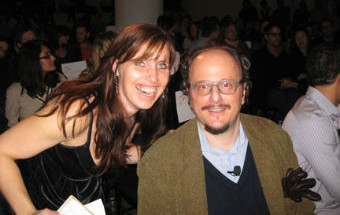Don’t you hate it when you are deep into reading a novel, and the author refers to something you can’t remember? You come across a line like, “Of course, Bob never would have divorced Jill if it weren’t for what Annie whispered to him in the storage room at the company Christmas party before she resigned her post,” and you ask, who was Annie again? What exactly did she whisper? Why did she resign? In what chapter did that happen? How could that have caused the divorce?
Who enjoys having to flip back and search for something you read dozens of pages and hours before. But if the story doesn’t make sense without it, sometimes you have to find it. Or maybe you just say, the hell with it, and stop reading the book. It’s too much trouble.
I call this writing issue a broken plate problem.
Have you ever seen one of those circus performers who specializes in spinning plates? The performer stands up a number of sticks on top of which he spins plates, trying to impress the audience with how many plates he can keep spinning at the same time. The secret to his success is timing — how often he spins plates he’s already spun so he can add new plates without any plates falling.
As writers of long-form fiction, novelists are also plate-spinners, especially when we employ multiple points of view, multiple locations or different time frames. Disparate elements provide change of pace, scenery, voice and character, constantly refreshing the story with novelty and variety, but with this variety comes risks. Broken plates. Even linear stories told from a single POV can suffer from this problem anytime a story element is introduced but then abandoned for so many pages that the reader forgets its earlier significance and the plate falls.
A great example of an author who recently spun plates to perfection is Anthony Doerr in All The Light We Cannot See. Doerr’s Pulitzer Prize winner has six principles plates. Three of them occur in Saint-Malo France in 1944 during and after an allied bombing run. They concern, firstly, the French blind girl, Marie, waiting the bombs out in her Uncle’s house; secondly, the German radio operator, Werner, trapped in the basement of a bombed out hotel, and, thirdly — a smaller, but crucial plate — the Sergeant Major, waiting for the bombing to stop so he can search Marie’s house for a precious jewel. Here are three stories told from three different POVs concerning characters who don’t meet until the end of the book. The three other plates involve the same characters as their stories progress in different locations throughout Europe from the late 1930s up until the bombing run begins in Saint-Malo in 1944. Those three plates concern how and why these three characters ended up together in Saint-Malo.
By writing very brief chapters, switching among all six stories, spinning the three in the present, then the three in the past, back and forth, Doerr keeps all the plates going with nary a wobble. I never once lost the thread of any of the six stories and, more than any other book in recent memory, I was spellbound with anticipation. How and when would all these stories collide? I didn’t have to be reminded of what Werner was doing the last time we saw him in battle, what clues the Sergeant Major had unearthed about the locations of the jewel during his last appearance, or why Marie kept wondering, scene after scene, why her father repeated that last phrase in the letter he wrote her: “If you ever wish to understand, look inside Etienne’s house, inside the house.” We knew what Marie’s father was up to, even if Marie didn’t. Despite all these different story lines, my anticipation about what would happen when the three characters finally met was never frustrated by confusion over who was doing what, when or where. Doerr kept all the plates spinning flawlessly throughout the book. If there had been an Annie in his book, you never would have forgotten who she was or that she was at the Christmas Party. (Who’s Annie? Reread my first paragraph. And don’t you agree, it’s a drag when you forget a character?)
Of course, some books are just so good, the writing so compelling, we forgive the author the occasional broken plate. David Mitchell’s books, like Cloud Atlas and The Bone Clocks, break plates constantly, abandoning stories and characters, only to pick them up much later, then daring you to reconstruct and re-spin them to see how they relate. I recently finished his first novel, Ghostwritten, every chapter of which was written in a different POV and location across the globe. Unlike Doerr’s book, Ghostwritten spins each plate once and leaves it up to the reader to keep all the plates spinning. Some reviewers called Ghostwritten a novel of loosely linked stories, so seemingly detached are the chapters from each other. Every so often a character from one chapter would be mentioned in another, and seeing this, I’d scramble to remember where I’d heard that name before because I sensed a very clear but fine thread — a ghost — linking all the stories, and I knew if I wanted to see this ghost, I’d have to think through what I’d read, maybe reread a few passages, to get all the plates spinning at once.
But my patience with Mitchell is a rare occurrence reserved for writers I’m familiar with and trust will reward me handsomely for my reading and re-reading efforts.
I also recently finished reading Jonathan Franzen’s new book, Purity, which also jumps between different POVs and timeframes. Unlike Doerr’s book, Purity does so in longer chapters that appear in non-chronological fashion, so the story is harder to follow and makes the reader work harder to collect and tie up the threads Franzen cuts as he jumps around. Halfway through Purity, I found myself having to look up characters, mentions of ideas or metaphors that came many pages earlier, so as to remind myself of their significance. Broken plates. I was starting to get frustrated, wondering if it was all worth it, but I kept on going. This was Franzen, after all. Finally, he stopped introducing new characters and started tying together the various threads. When I reached the last chapters, I could see all the plates spinning at once, and even though I’d had to re-spin a few of them myself early in my reading, it was still a worthwhile reading experience.
But, again, I’m familiar with Franzen and willing to give him the benefit of a doubt I might not be willing to give a first-time novelist I’ve never read.
Maybe I’ll be able to risk the structural flourishes and broken plate problems Mitchell and Franzen get away with in my own third, fourth or fifth novels, but until my readers get to know and trust me as a writer, I worry about how much I can challenge my reader. For my first book, I think that when I mention something in my writing after a seemingly long absence — remember Annie at the Christmas Party? — I want readers to think she was there all along, to say, “I saw that coming! It was all Annie’s fault Bob divorced Jill,” and not think, “Who the hell is Annie?” At this stage in my development, I prefer to emulate Doerr, whose book, I think, was a prize winner precisely because he wrote a structurally challenging book that was, nonetheless, easy to read.



5 comments